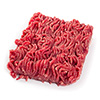Sign In Chef

By using our free meal planner (and the rest of spoonacular.com) you have to agree that you and only you are responsible for anything that happens to you because of something you have read on this site or have bought/cooked/eaten because of this site. After all, the only person who controls what you put in your mouth is you, right?
Spoonacular is a recipe search engine that sources recipes from across the web. We do our best to find recipes suitable for many diets — whether vegetarian, vegan, gluten free, dairy free, etc. — but we cannot guarantee that a recipe's ingredients are safe for your diet. Always read ingredient lists from the original source (follow the link from the "Instructions" field) in case an ingredient has been incorrectly extracted from the original source or has been labeled incorrectly in any way. Moreover, it is important that you always read the labels on every product you buy to see if the product could cause an allergic reaction or if it conflicts with your personal or religious beliefs. If you are still not sure after reading the label, contact the manufacturer.
We also attempt to estimate the cost and calculate the nutritional information for the recipes found on our site. Again, we cannot guarantee the accuracy of this information. Additionally, our nutrition visualizer that suggests that you limit sodium, sugar, etc., and get enough protein, vitamins, and minerals is not intended as medical advice. Similarly, our health tips are based on articles we have read from various sources across the web, and are not based on any medical training. The team behind spoonacular does not possess any medical qualifications and the information may be found to be incorrect or out of date based on future research. If you need help planning your diet or determining which foods (and recipes) are safe for you, contact a registered dietitian, allergist, or another medical professional.
Spoonacular is not responsible for any adverse effects or damages that occur because of your use of the website or any information it provides (e.g. after cooking/consuming a recipe on spoonacular.com or on any of the sites we link to, after reading information from articles or shared via social media, etc.)
×$1.64 per serving

12 likes

Ready in 45 minutes

Spoonacular Score: 56%
If you have about 45 minutes to spend in the kitchen, Moroccan kofte and sausage stew might be an excellent gluten free, dairy free, paleolithic, and primal recipe to try. One serving contains 372 calories, 21g of protein, and 28g of fat. For $1.64 per serving, you get a main course that serves 8. 12 people found this recipe to be delicious and satisfying. It is perfect for Autumn. It is brought to you by Foodista. If you have coriander half, onion, sausage, and a few other ingredients on hand, you can make it. With a spoonacular score of 49%, this dish is pretty good. If you like this recipe, take a look at these similar recipes: Moroccan Stew, Vegetarian Moroccan Stew, and Moroccan Chicken Stew.
Stew can be paired with Cabernet Sauvignon, Chablis, and Malbec. Full-bodied red wines like malbec and cabernet sauvignon are the perfect accompaniment for beef stew. Fish stew probably calls for a white wine, such as chablis. The Dumas Station Estate Cabernet Sauvignon with a 4.9 out of 5 star rating seems like a good match. It costs about 69 dollars per bottle.
 The nose of this wine yields beautiful fruit aromas including cherries and blackberries. A wonderful, mouth-filling body coats the tongue and reaches almost every point in your mouth. Our favorite thing about this wine is the long, lingering finish that goes on... and on...
The nose of this wine yields beautiful fruit aromas including cherries and blackberries. A wonderful, mouth-filling body coats the tongue and reaches almost every point in your mouth. Our favorite thing about this wine is the long, lingering finish that goes on... and on...
» Get this wine on Amazon.com














































Read the detailed instructions on Foodista.com – The Cooking Encyclopedia Everyone Can Edit